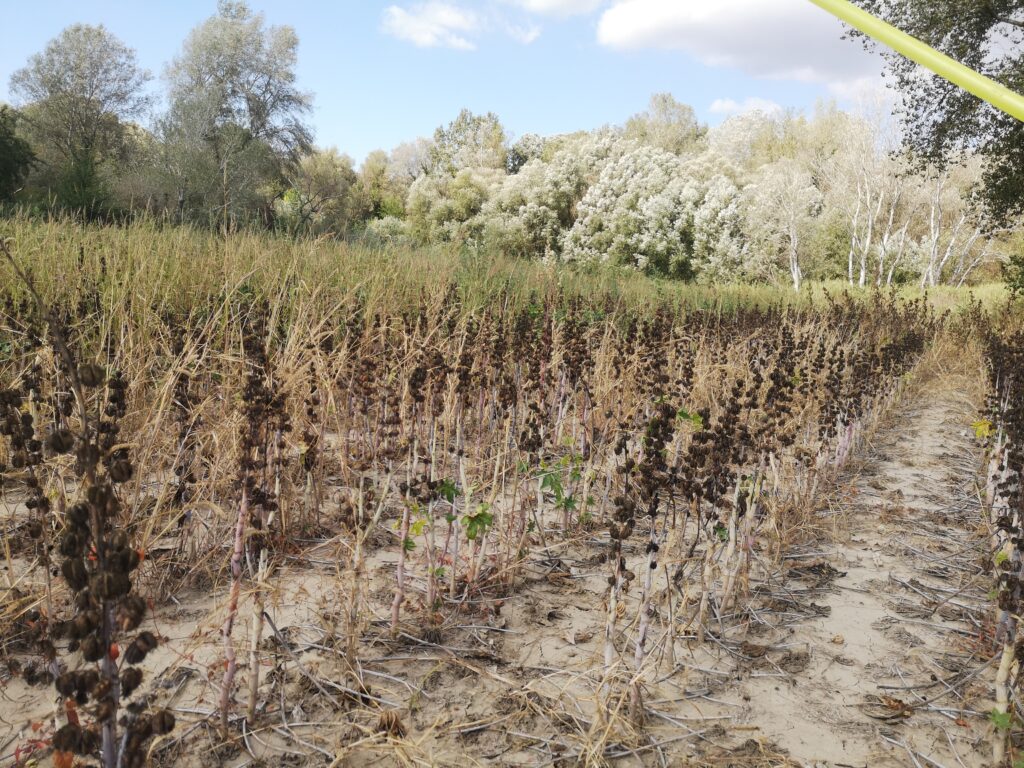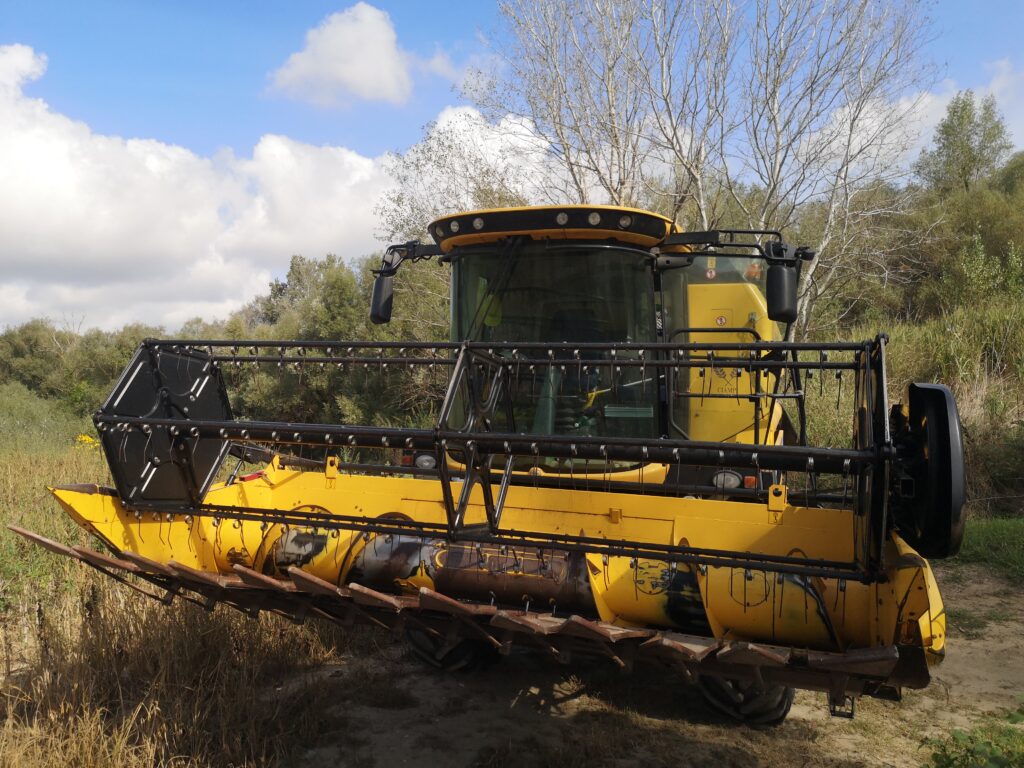Last summer, as part of MIDAS activities, our partners CREA-IT and Novamont worked on several tests focused on the mechanical harvesting of castor plants, a crop with significant potential for bio-based industries. These experiments involved plants treated with different types of desiccants, including a pre-harvest formulation based on pelargonic acid produced by Novamont, aiming to identify the most effective approach that guarantees smooth harvesting operations while preserving seed quality.


The research team meticulously monitored key performance indicators such as seed integrity and the amount of residual material—two critical challenges in mechanized castor harvesting. Each trial was carefully designed to simulate real-world conditions, ensuring that the findings can be directly applied to large-scale production systems.
Currently, the extensive dataset collected during these tests is undergoing detailed analysis to determine which treatment delivers the best balance between operational efficiency and seed quality. This work represents a major step forward in improving mechanization for castor cultivation, reducing labor costs, and enhancing sustainability. By collaborating with Novamont, one of a leader in biodegradable and compostable bioplastics and the development of bioproducts and biochemicals, CREA-IT is contributing to the development of advanced supply chains that support the transition toward a circular economy.

